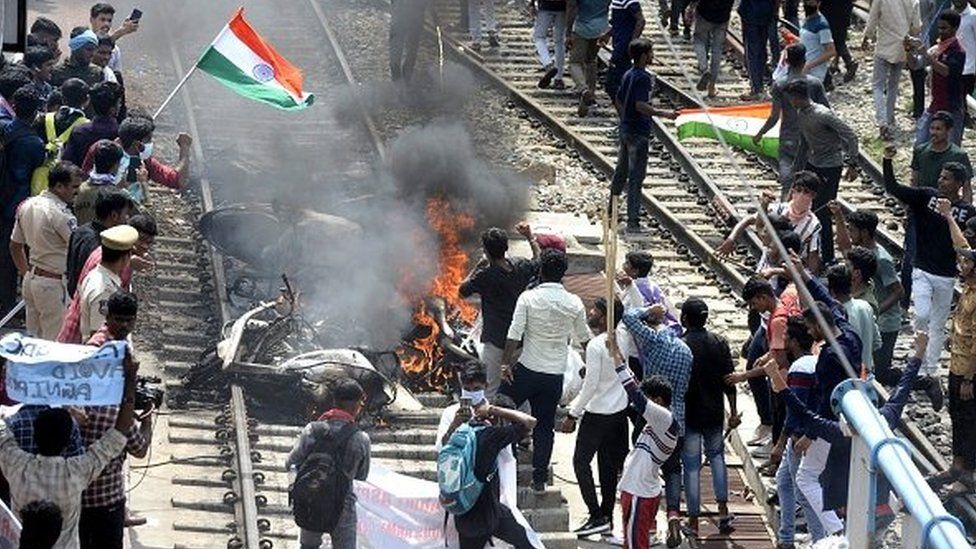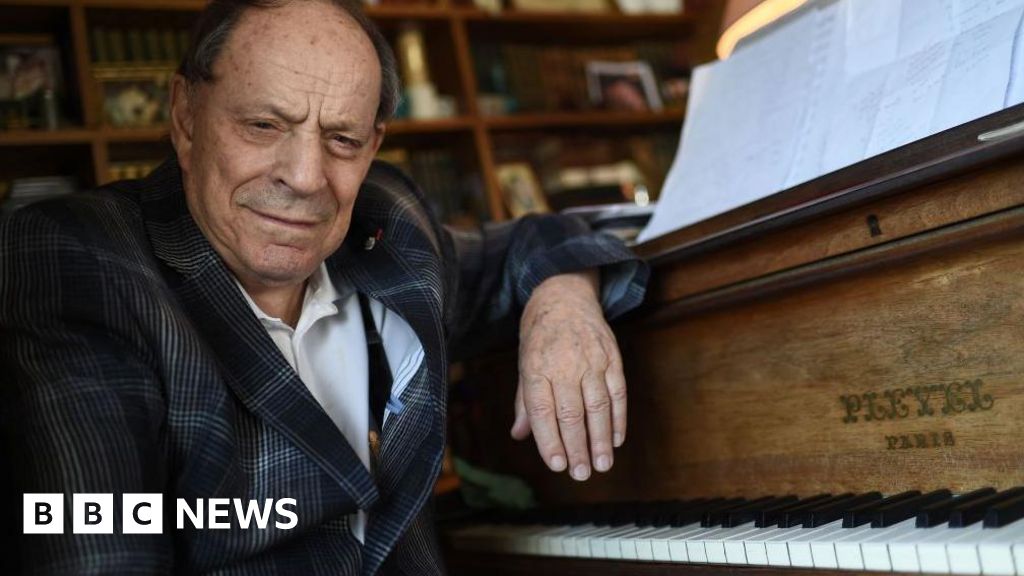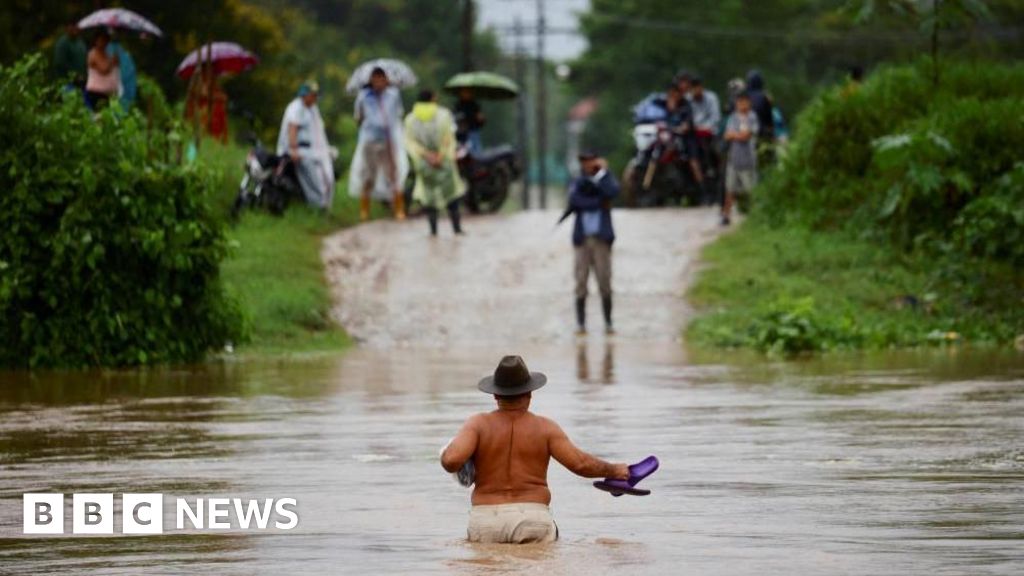ARTICLE AD BOX
 Image source, Getty Images
Image source, Getty Images
Protesters set a train on fire during a demonstration against India's new Agnipath scheme
A person has died and 13 others have been injured in India after protests against a new army hiring plan turned violent.
He died when police and protesters clashed in Secunderabad city in the southern state of Telangana on Friday.
Police reportedly opened fire into the crowd but reports said it was not clear if the man died due to a gunshot wound.
Several states have seen huge protests against the plan to hire soldiers on a fixed four-year term.
Protesters say the government's plan to hire temporary soldiers will reduce their chances of getting coveted permanent military jobs, which guarantee fixed salaries and pensions.
Young people in India's smaller towns and villages prepare for years to become soldiers in the armed forces as the job brings prestige, a regular income and for some, a way out of poverty.
Many have taken to the streets in several states, including in Bihar, Telangana, Uttar Pradesh and West Bengal, to protest against the plan.
Protesters have burnt buses and railway coaches in Bihar and Telangana. In some places, they have accused the police of using excessive force.
The new Agnipath scheme is aimed at people aged between 17.5 and 21 years. It says that successful candidates will join the armed services for four years, after which only 25% of them will be retained.
The soldiers will go through training for six months and then will be deployed for three and a half years. During this period, they will get a monthly starting salary of 30,000 rupees ($384; £316), along with additional benefits which will go up to 40,000 rupees by the end of the four-year service.
The reform announcement is aimed at cutting the army's expenditure on ballooning salaries and pensions - which consume more than half of its budget - and freeing up funds to modernise the forces. The government said this would also "enhance the youthful profile of the armed forces".
Protests against the scheme began in the northern states of Uttar Pradesh and Bihar earlier in the week. But they have now spread to several other states.
In Telangana's Secunderabad city, hundreds of young candidates entered a railway station. Some of them reportedly set shops and coaches on fire. Some protesters told the BBC that around 2,000 of them had arrived at the railway station.
The protesters gathered to demonstrate on the railway tracks and halted all train movement for hours.
They threw packages and goods on the tracks and set them on fire.
In a bid to pacify protesters, the federal government announced late on Thursday night that candidates aged up to 23 years could apply under the scheme in the first year.
On Friday, the government also shared posts on social media, explaining the various opportunities it said would be available to short-term soldiers after they finish their stint. It said that police forces will be asked to accommodate those who successfully finish their four-year terms in the armed forces.
Critics of the scheme say that it will weaken the armed forces and also increase unemployment rates in the country.
"It's a foolish move, one that could affect the efficiency of the security forces," said retired Major General Sheonan Singh.
"Saving money is good but it should not be done at the cost of defence forces. If you go to war with an experienced soldier, will a person with four years of training be able to replace him on his death? These things don't work like this."
But those who support the move say that such a plan was needed to make the forces more efficient.
Retired Maj Gen SB Asthana said the step would benefit the army as it would help modernise India's forces.
"It is difficult to train old people in modern technology. But this generation is more capable. This plan will give freedom to the army to keep the best 25% of the soldiers and let the rest go."

 2 years ago
63
2 years ago
63








 English (US)
English (US)